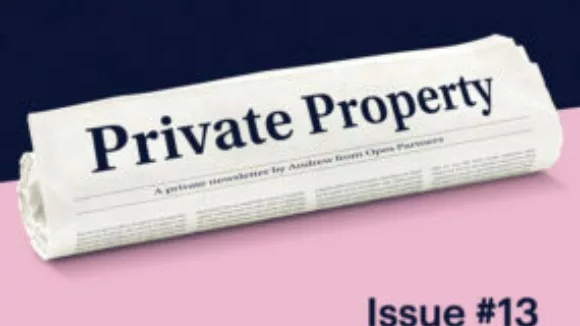
Property Investment
Property Investment
3 min read

Author: Andrew Nicol
Managing Director, 20+ Years' Experience Investing In Property, Author & Host
Private Property – our weekly newsletter that gives you insights into what's happening in the NZ property market. Written by managing director Andrew Nicol. Sign up to receive this in your inbox every Thursday.
The Reserve Bank’s hiked the OCR yesterday. Yeah ... interest rates are on the rise (once again).
That leaves many property investors thinking about the C-word …
Cashflow.
But there is one major mistake property investors make when crunching their numbers.
They leave out too many costs and end up with an inaccurate view of how their property will actually perform.
So when you’re doing your sums, here is what you must include in the cashflow.
This is the income coming into your bank account. Few people miss this
Sometimes your tenant will leave, and it takes time to find a new one.
So budget to not have a tenant for 2 weeks of the year. Rather than budgeting for 52 weeks of rent a year, only budget for 50.
Investors miss this all the time.
Investors are pretty good at remembering these three.
But if you’re going to get landlord insurance (usually about $400 a year), factor this in.
Some investors don’t include maintenance in their cashflows. Then when it crops up, they have to pay for it out of their own pocket.
Allocate about $500 a year for a new build and $1,000 for a property that is 10-20 years old.
And if it’s built before the year 2000, budget for around $2,000 a year.
The core property management fee is usually 7.5% – 8.5% + GST.
But also, don’t forget to allocate a week’s worth of rent + GST each year if you need to replace your tenant.
You won’t have to do it every year, but it’s better to budget for it and be on the conservative side.
This is usually $1,150 + GST per year for your first property and about $200 + GST for every additional property.
Here's an example
Let’s say a few years ago, you bought a standalone house and took out a $500k mortgage on interest-only. And the property rents for $550 today.
Here’s what the cashflow would like:
You’ve got $27,500 coming in on the revenue side. Then we’ve got to factor in all of the costs:
They’re all included except for body corporate fees. Because, in this case, it’s a standalone property, there aren’t any.
All up, the expenses are $31,769.
And that means that at today’s interest rates, this property has higher costs than the rent it earns. Here’s how the numbers look:
The property is negatively geared by $4,269, or $82 a week.
This is pretty typical, even for a property bought a few years ago.
But .... what have I missed?
But, I missed one crucial part from this cashflow … did you spot it?
[Don’t just scroll down to see the answer. See if you can figure it out 😅]
It starts with a T.
It’s tax.
Even though the property has negative cashflow, there’s still income tax to pay on this property. Why?
Since it was bought a few years ago, it’ll come under the new interest deductibility rules.
So in this tax year, not all of the mortgage interest costs are tax-deductible.
In this example, the investor would pay $447 in tax in this financial year.
And that increases as the new tax rules are phased in.
That means that creating a cashflow is becoming more complicated.
So there are two key steps you need to take:
1) You can use the above process to work out the pre-tax cashflow for any property.
2) But, if you want a more accurate tool to help you forecast your cashflow, you can also download the spreadsheet I use with my investors.
It’s free to download and is called the return on investment calculator. And over 8,000 investors have downloaded it.
It takes in all the hard costs and factors in the tax changes.
Managing Director, 20+ Years' Experience Investing In Property, Author & Host
Andrew Nicol, Managing Director at Opes Partners, is a seasoned financial adviser and property investment expert with 20+ years of experience. With 40 investment properties, he hosts the Property Academy Podcast, co-authored 'Wealth Plan' with Ed Mcknight, and has helped 1,894 Kiwis achieve financial security through property investment.
This article is for your general information. It’s not financial advice. See here for details about our Financial Advice Provider Disclosure. So Opes isn’t telling you what to do with your own money.
We’ve made every effort to make sure the information is accurate. But we occasionally get the odd fact wrong. Make sure you do your own research or talk to a financial adviser before making any investment decisions.
You might like to use us or another financial adviser